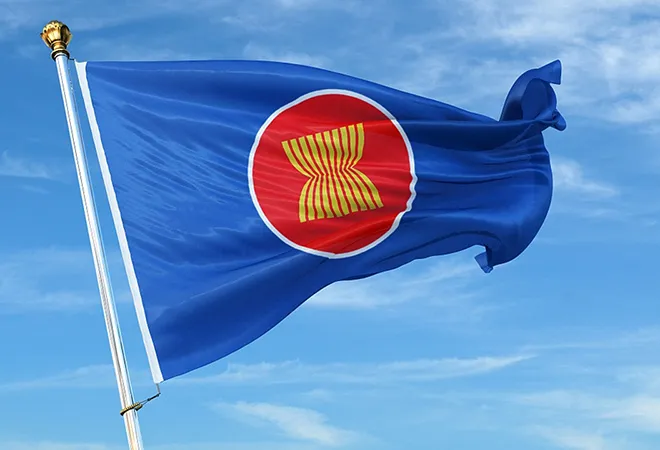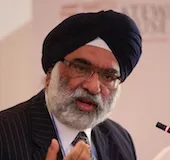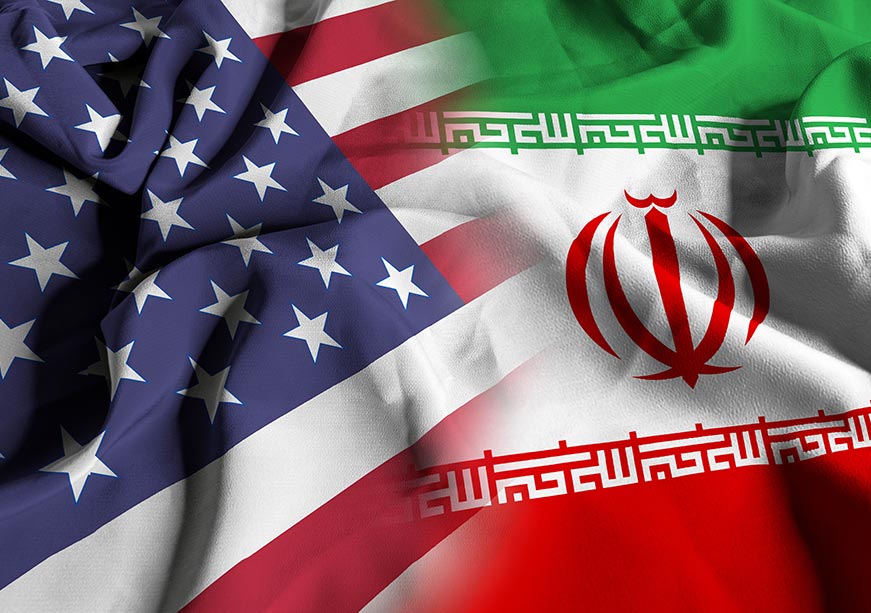
At the conclusion of the 40th and 41st ASEAN Summit in November in Phnom Penh, Cambodia, President Jokowi of Indonesia was handed over the gavel as the symbolic transfer of the ASEAN presidency from Cambodia to Indonesia. Accepting the honour, Jokowi said that Indonesia will adopt the theme ‘ASEAN matters: Epicentre of Growth’. Jokowi indicated that their key objectives were to ensure the stability of ASEAN, to ensure a peaceful Southeast region by making the ASEAN the anchor for stability, and to enforce international law consistently. Jokowi said, ‘ASEAN must be a dignified region and uphold human values and democracy’. Indonesia expects to nudge ASEAN to move towards rapid growth in an inclusive and sustainable economic region by strengthening its institutional capacities and effectiveness. This will prepare ASEAN for the next two decades. While doing this and dealing with the difficulties it faces, Indonesia proposes to abide by the ASEAN way, consistent with the spirit of cooperation and the ASEAN charter.
Indonesia expects to nudge ASEAN to move towards rapid growth in an inclusive and sustainable economic region by strengthening its institutional capacities and effectiveness.
Indonesia assumed the presidency of the ASEAN soon after its successful leadership of the G20 and its summit in November in Bali. That was an unexpected success. While the success was based on the reduction of rancour among the big powers, the fact that Indonesia had worked hard to achieve its aims and keep the G20 on an even keel should not be overlooked. Indonesia's chairmanship of ASEAN has the same expectations. The chairmanship of ASEAN brings with it the leadership role in other ASEAN-centric institutions, notably the East Asia Summit, the ASEAN Regional Forum, the ASEAN Defence Ministers Meeting Plus and the extended ASEAN maritime forum.
While the G20 was an international stage, the ASEAN chairmanship is an important regional stage for President Jokowi’s final year as the President of Indonesia. Jokowi completes his term in 2024. As per the constitutional provisions, having completed two terms he cannot contest again. Therefore, the ASEAN Summit is his regional swan song with international recognition. Indonesia gets to Chair ASEAN once in a decade so far and its last turn was in 2013. However, the last chairmanship was in 2011 because Indonesia had swapped its place with Brunei; thus, Indonesia last chaired ASEAN in 2011, under President SB Yudhoyono.
The previous Indonesian regime had about two years after the Presidency to follow up the ASEAN leadership before elections were held in 2014; in the present case, the Jokowi administration will not have that luxury of a period to consolidate its ASEAN gains. Whatever they do now will be used by them in the election campaign in 2024, depending on whom Jokowi backs for President. Therefore, there is a strong domestic implication to the Indonesian presidency of ASEAN this time.
Challenges confronting Indonesia
The main challenges for ASEAN have not changed over the last two years. ASEAN faces the overthrow of democracy in Myanmar, continues to deal with an adamant China on the Code of Conduct (COC) in the South China Sea (SCS), and faces challenges to its centrality, with the growing impact of the Ukraine crisis, Quad, and AUKUS.
There is a challenge ahead for Indonesia as ASEAN chair to harmonise their positions on the Ukraine crisis, knowing full well that all of them have different views.
The difficult task for ASEAN is Myanmar which has bedeviled the presidencies of Brunei and Cambodia. Jokowi during the Brunei presidency hosted a Leaders Meeting in Jakarta which led to the Five-Point Consensus (5PC) which remains the ASEAN position. Efforts by the foreign ministers of Brunei and Cambodia, as ASEAN special envoys were unsuccessful in budging the Myanmar regime. The situation in Myanmar is worsening with every passing day, with more violence and crackdown and lesser scope for the democratic forces to even meet with ASEAN interlocutors.
This remains an important issue for Jokowi to deal with. Indonesia with Malaysia and Singapore lead ASEAN for a firmer position on Myanmar. They overcame obstacles by more reticent members. They have not succeeded in budging Myanmar, leading to questions being asked about the centrality of ASEAN if it cannot maintain its own principles and decisions.
The UN Security Council (UNSC) meeting on Myanmar in December saw India, China, and Russia—all EAS members—abstain while UNSC supported a tougher call on Myanmar as ASEAN’s 5PC. There is no ASEAN member on the UN Security Council at present. ASEAN may draw solace that the UNSC supported it but the ball is squarely in the ASEAN’s court. Indonesia will have to steer the Myanmar imbroglio. In the past, foreign ministers of Indonesia played a crucial role in dealing with the Myanmar regime and their internal issues, particularly the Rohingya and its internal democratic issues. The Indonesian approach of a ‘benevolent elder brother’ to Myanmar needs to remerge to get results.
While Myanmar challenges the centrality of ASEAN, its unity is also under stress due to the Ukraine war. During the Cambodian chairmanship, there was no unified ASEAN position on the Ukraine crisis, though they were all united in their concerns regarding food, fuel, and fertiliser. At that time, Jokowi as chair of the G20 visited Russia and Ukraine in an attempt to calm the situation and prevent the disruption of global supply chains and commodity markets. As for ASEAN, all their members voted in their own way in the UN General Assembly, when votes on criticising Russia and the like came up.
There is a challenge ahead for Indonesia as ASEAN chair to harmonise their positions on the Ukraine crisis, knowing full well that all of them have different views. On the political aspects of the crisis, some, like Vietnam and Laos abstained. Nine ASEAN members including Indonesia, Cambodia, Singapore, and Timor Leste voted for the UNGA resolution.
Under Indonesia, ASEAN would seek to stabilise international supplies and pricing because this impacts their growth. Indonesia is committed to pursuing ASEAN as a substantial growth pole.
Under Indonesia, ASEAN would seek to stabilise international supplies and pricing because this impacts their growth. Indonesia is committed to pursuing ASEAN as a substantial growth pole. For trade and economic relations, Indonesia has to cope with the emergence of RCEP, which seems to have had more energy before it was signed. Indonesia itself finally entered RCEP in January 2023. As ASEAN countries await fuller results of RCEP implementation, they realise that during the pandemic, China and ASEAN became each other's largest trading partners. This overall domination by China is of concern to the other partners like Japan, Korea, and Australia. India, having withdrawn from RCEP, remains a significant trading and investment partner.
Just as seven ASEAN members joined the Indo-Pacific Economic Framework (IPEF) indicating a kind of balance with the RCEP dominated by China, Indonesia is also expected to strategically balance ASEAN with other powers. The US-ASEAN Summit in May 2022, the same year as the 30th anniversary of ASEAN-China relations, shows strands of this effort. ASEAN realises that its economic dependence on China is immense, but China has not played fair with it on the Code of Conduct (COC) for the South China Sea. It is now 20 years since the negotiations are underway. Indonesia itself faces intrusions into its waters off the Natuna Islands.
At the same time, the anxieties over the Quad and the AUKUS seem to have been managed by ASEAN, particularly through the way that Indonesia led the G20. A consensus document was facilitated by Indonesia, while Cambodia could not lead the EAS into a consensual communique in 2022. There is hope that Indonesia will pursue ASEAN interests vis á vis China and adjust to realities around them in the manner ASEAN adjusted with China. Since ASEAN is not a powerful body, it resorts to astute diplomacy to maintain its position and the record of Indonesia as ASEAN chair for such diplomacy is a good one, which perhaps needs emulation.
This direction was evident at the 32nd ASEAN Coordinating Council (ACC) Meeting and ASEAN Foreign Ministers' Retreat in February 2023. Strengthening the Committee of PRs, the EAS, and the role of the ASEAN Secretary-General are now in focus. The development of an ASEAN Maritime Outlook (AMO) and fleshing out the AOIP principles are the tools that Indonesia is likely to use in the ASEAN way to attain the larger objectives,
The views expressed above belong to the author(s). ORF research and analyses now available on Telegram! Click here to access our curated content — blogs, longforms and interviews.




 PREV
PREV


